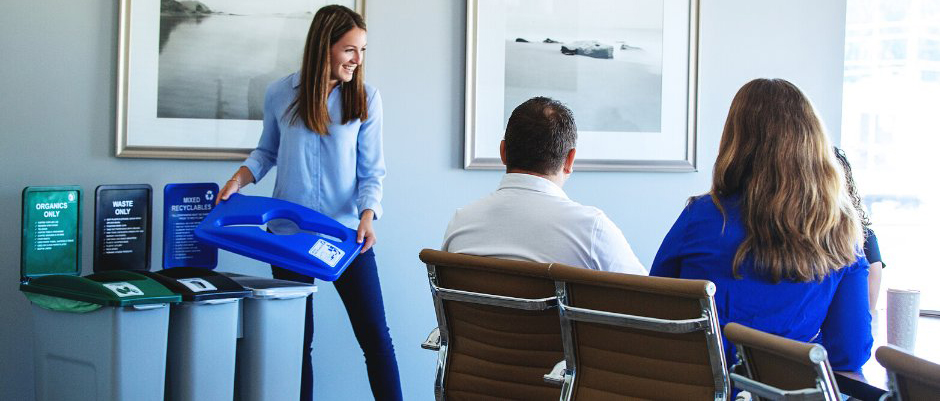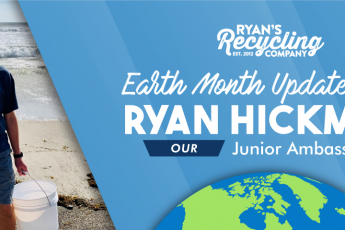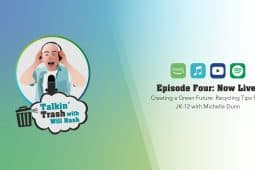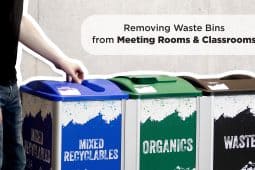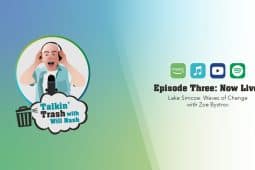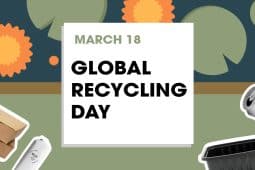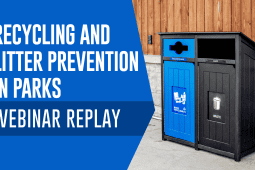Recycling is essential, it decreases waste, allows materials to be reused, and helps the environment. With all these benefits, it’s hard to believe that some people don’t recycle! Sometimes people just need an extra push to encourage them to start. Here are some clever ways organizations are giving people that extra push to inspire them to recycle.
Reverse Vending Machines
Instead of giving a vending machine money to receive a soda or candy bar, imagine the exact opposite. Reverse vending machines give money in return for used recyclables, ensuring proper sorting and rewarding for recycling.
Beijing introduced reverse vending machines to help encourage plastic bottle recycling. When people bring their empty bottles to the machine, it will give out transportation credits or phone minutes. The more bottles you bring, the greater the number of credits you can receive.
The first reverse vending machine for batteries was introduced by Coop Norway (Supermarket chain) and Energizer. The more batteries you return to the machine the greater the number of awards you receive. In this case, the reward is 1 Krono (12 cents) for one battery. These rewards can be put towards the purchase of new batteries. The hope is to increase the number of people that recycle batteries instead of throwing them in household garbage.
Recycle Bank
How would you like to be rewarded for recycling? I know I would, and it’s possible now due to an organization called RecycleBank. RecycleBank rewards people for recycling. When people recycle, they are rewarded with points that can be redeemed for coupons or discounts and can be used at different stores. The stores will vary depending on your location but some of the stores the points can be redeemed are Amazon, Bed Bath and Beyond and Target. Local organizations will usually offer rewards as well. RecycleBank is committed to encouraging people to recycle, reduce waste and making the world a greener place.
Recycling for Healthcare
In Indonesia, there is a lack of waste management programs and because of this, only 50-60% of garbage is collected. The lack of waste management creates health problems for citizens. After noticing this problem, Dr. Gamal Albinsaid created Garbage Clinical Insurance. Garbage Clinical Insurance is an organization where people can bring garbage in exchange for health care services. The garbage is used to make money by turning organic material into compost and recyclables into products. This money is then used to fund health care for citizens. This program is designed to solve two problems at once, it helps the environment and takes care of people by providing an opportunity for health care.
Recycling Fine
For people who are worried that technology is going to take over the world, be worried. Just kidding, we aren’t there yet, but we are at the point where municipalities can use technology to see if you are recycling without even coming to pick up your garbage.
Cleveland has a program in place that motivates citizens to recycle by imposing fines for those who do not comply. The city’s recycling bins have radio frequency identification chips in them. The chip tells the city when a recycling bin has not been put at the curb in the past few weeks, letting the city know which residents have not been recycling. After a chip goes off, a trash supervisor will come to search the home’s trash to see if recycling has been going in the trash. If there is more than 10% recycling in the garbage bins people are faced with a $100 fine! Cleveland is hoping the monitoring of recycling and fine will encourage people to recycle.
—
The excitement of rewards, the promise of health care, and the fear of fines is enough to get anyone to start recycling. Hopefully, more places will introduce new and unique ways, like the ones above, to get people recycling.
